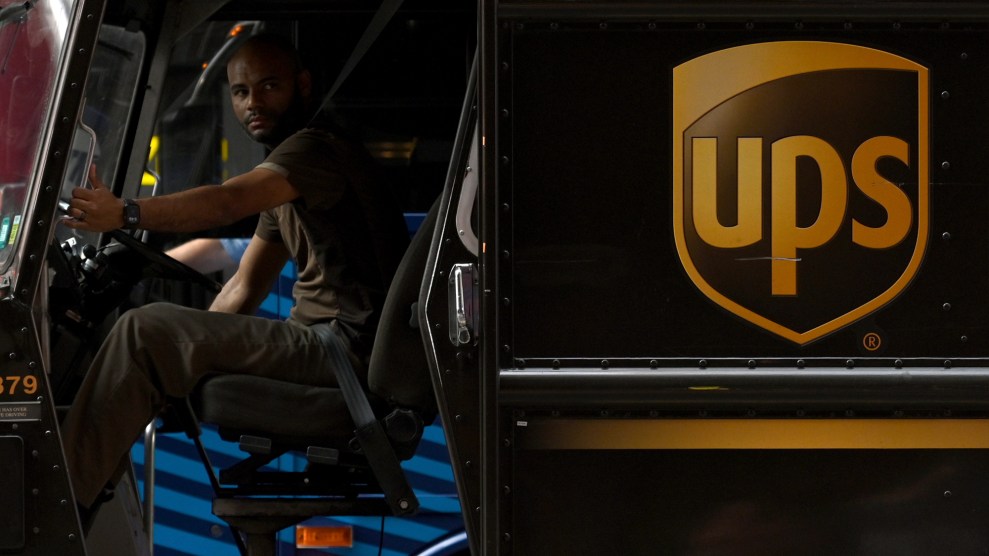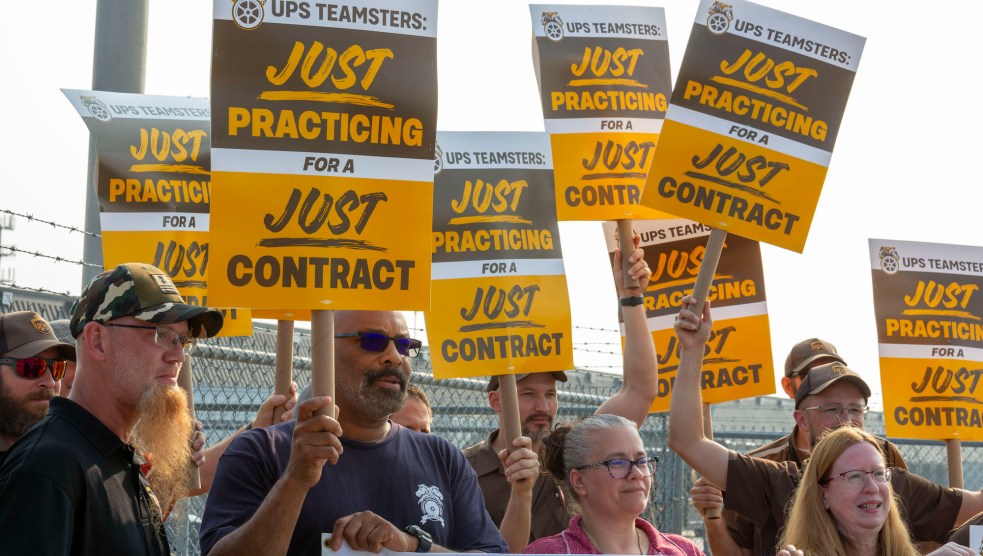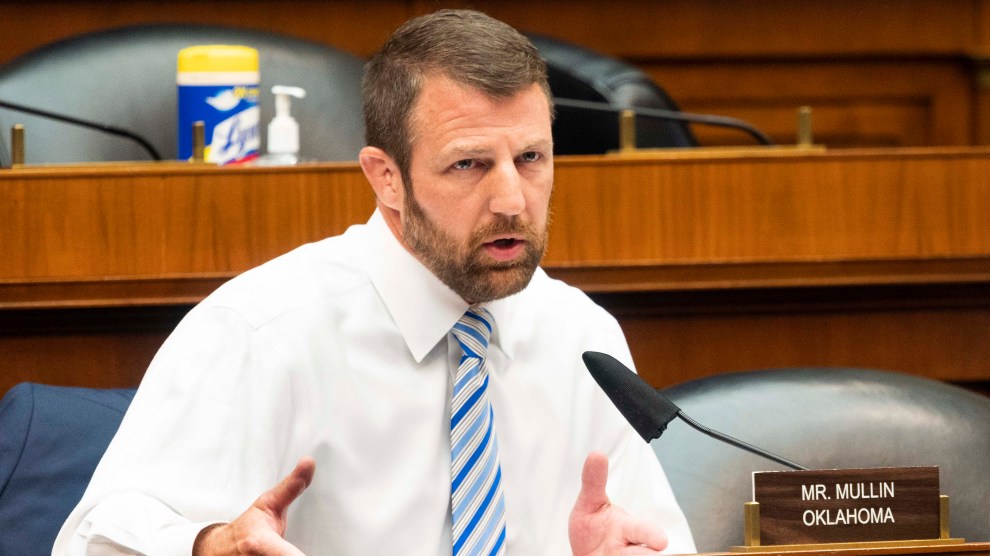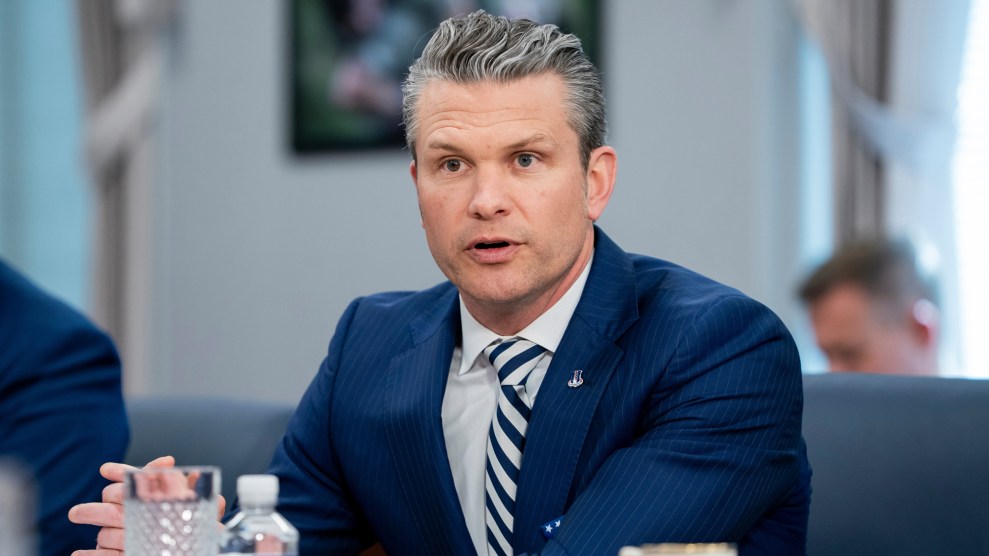
A UPS delivery driver sits in traffic while driving through Times Square. A UPS strike on August 1 is likely after negotiations fell apart on July 5. Anthony Behar/AP
The largest American labor strike in over 60 years looks increasingly likely: Early this morning, negotiations between UPS and the Teamsters broke down, according to a press release from the union.
In June, about 97 percent of the UPS rank-and-file voted to authorize a strike if the contract negotiations did not result in a new agreement. Their current contract expires on July 31. If negotiations aren’t revived, a massive action is set for August—340,000 UPS drivers, loaders, and package handlers will take to the streets.
On June 28, Teamsters president Sean O’Brien said that UPS had two days to provide a “last, best, final offer.” On July 1, the union set a new July 5 deadline for an agreement so that union members would have sufficient time to review it before a vote. But after a weekend of “marathon” negotiations, the UPS Teamsters National Negotiating Committee unanimously rejected the shipping company’s “unacceptable” final offer.
The Teamsters had already made significant progress in the negotiations, as my colleagues Noah Lanard and Abigail Weinberg reported. They had won tentative wage increases, air conditioning in trucks, and an end to the much-maligned two-tiered driver system, where workers in the same position receive different wages based on when they were hired.
Still, the union says it’s not enough for a company that earned a record revenue of $100 billion in 2022. Since the beginning of the pandemic, annual revenue for UPS has increased by 11 percent each year. According to the Teamsters, UPS CEO Carol Tomé earns more in a day than the average UPS worker earns in an entire year.
The last UPS strike was in 1997 when 185,000 workers took to the streets for 15 days. A key plank of O’Brien’s election in 2021 was his vocal opposition to the current UPS contract negotiated by previous President James Hoffa in 2018. “If this company wants to negotiate a contract for 1997 working conditions, they’re going to get 1997 consequences. #GetFckingReal,” tweeted O’Brien.
“The union has a responsibility to remain at the table,” UPS said in a statement. “Refusing to negotiate, especially when the finish line is in sight, creates significant unease among employees and customers and threatens to disrupt the U.S. economy.”
It is true that the strike will have a dramatic impact on the nation’s economy. But disrupting the economy is, of course, the precise purpose of a work stoppage. For workers, withholding labor is the main way to wield power and leverage over their bosses. While the union brass negotiated this weekend, UPS rank-and-file workers began to practice picketing.
Teamsters Local 174 practice picketing in front of the UPS district manager’s office 💪😜 pic.twitter.com/mTwnHcBkA3
— Barnes & Noble copy of the Beatles “1” on vinyl (@flieldy) July 3, 2023
With UPS negotiators walking out of negotiations after promising a tentative agreement that meets the needs of and rewards hardworking UPS Teamsters, I'd say today is an excellent day to show UPS what kind of power we have with our solidarity. #StrikeReady pic.twitter.com/Ka5gdrDcLq
— Rank and Filer (@TheArchenteron) July 5, 2023


















